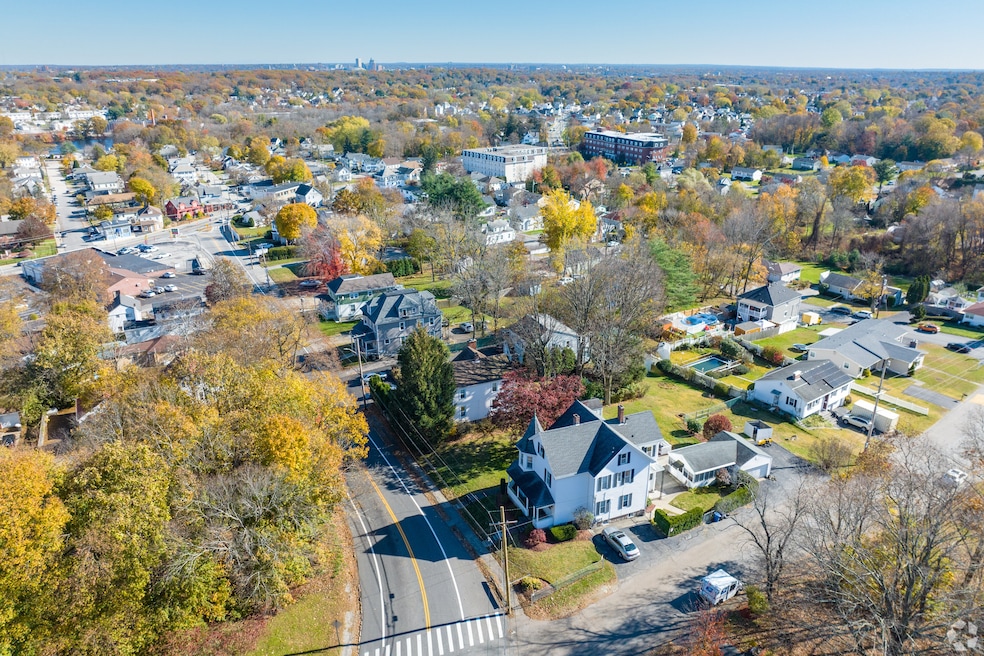A Rhode Island town is facing a lawsuit after it moved to take a landowner’s property to keep them from building hundreds of apartments for people with low incomes.
The town council in Johnston, a suburb of the state capital, Providence, voted in late January to acquire the 31 acres where the Santoro family had presented a plan for 252 homes. That led the Santoros to sue the town this week, claiming the town falsely asserted that it needs their land for a new town hall and police and fire stations. The owners say this is just a pretext to block low-income housing, since the town’s mayor made clear in a letter that he would accept single-family homes on the property, but not apartments.
Many towns and cities have used eminent domain, or the power of a local government to take someone’s land. The landowner has to be compensated for the loss of their property, typically at fair market value. In a 2005 ruling, the U.S. Supreme Court said governments can go further and take land and transfer it to a private company, even if it only has an indirect public use. The Rhode Island case is different, the Santoros say in the lawsuit, because the town isn’t being transparent about why it needs the land.
“Everyone should be interested in this issue, because whether you know it or not, your land is for sale,” Kady Valois of the Pacific Legal Foundation, lead attorney for the Santoros, said in an interview. “The government can step in and take your land at any time, as long as they say it has a public use.”
Johnston Mayor Joseph Polisena said in a December letter that he would fight the owner’s effort to use a Rhode Island law that allows more homes on a property than would otherwise be the case if the development is priced for people with low or moderate incomes. Typically, that means people making no more than 50% of the area median income, which in Providence in 2023 was $67,000, according to the U.S. Census. The state law applies to certain towns where less than 10% of the homes are affordable to that segment of the population.
The mayor said the proposed apartments would bring an unwanted increase in traffic, stormwater drainage issues, and children for the town’s public schools to educate. He said the state law was designed to “force-feed towns like ours ill-fitting developments.”
“We’re more than willing to support reasonable development, and single-family homes, which are much needed and sought after, remain an excellent option,” Polisena said in the letter, which he sent to the town planning commission as it considered the apartment project. “If you pivot in that direction, I can assure you the town will roll out the red carpet.”
The day before the town council vote, the mayor announced the town would acquire the property to build the town hall and other public buildings. He said in a statement at the time that the current town hall and fire and police stations were too small and in disrepair. He added that to pay for the new facilities, the town would scrap plans to build a new high school.
"There is a critical need for our Town to replace its core government buildings," Polisena said in a statement Thursday. "Our police station was built in 1978, when the department was less than half its current size. The Town’s fire headquarters, constructed in 1968, originally served as the dual police and fire station for the Town. Our town hall was erected in 1939, when the Town’s population was a mere one third of the current 30,000 residents. All three buildings present significant accessibility, infrastructure and safety hazards for employees and residents alike."
"The land in question best serves the residents of Johnston as a new municipal complex with a police headquarters, fire headquarters and town hall, rather than a 252-unit, high density, 100% low-income housing project, which would bring anywhere from 600-800 new residents in the town, including school-aged children with a per pupil cost of over $20,000," he added. "My number one priority is the 30,000 residents that currently live in Johnston and providing them effective and efficient government services. I look forward to the legal fight initiated by the developers in federal court."
Until the low-income housing development was proposed, the town had indicated no plans for building a new town hall, police or fire station, according to the lawsuit.
“The town says they don’t want the affordable housing, they want the municipal complex, but that directly contradicts other statements that were made by the mayor,” Valois said. “It makes it difficult, when affordable housing is what the area needs.”

